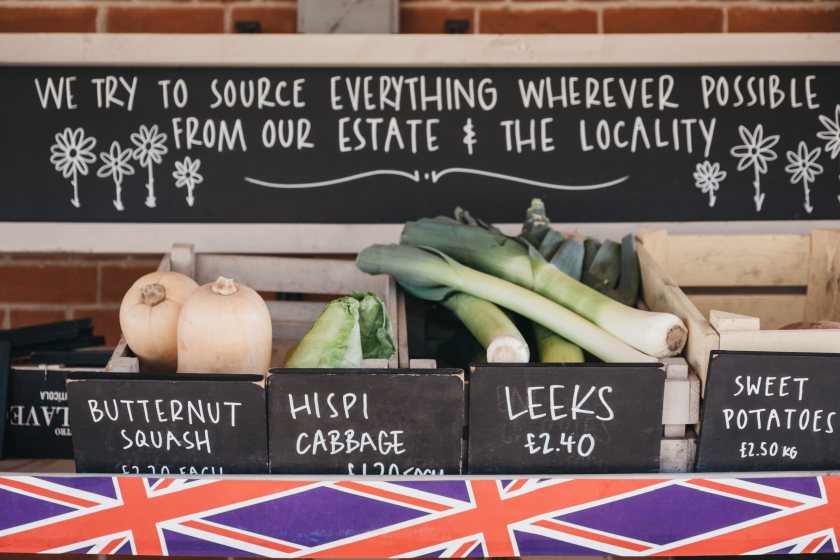
Farm shop owners are being urged to stay vigilant after some rural retailers say they have lost up to £500,000 to crime incidents over the past 12 months.
The research, by NFU Mutual, puts into spotlight an alarming number of cases of theft and violence in farm shops across the country.
Two-thirds of retailers in rural areas surveyed by the insurer said they had suffered from crime over the past 12 months.
This has cost shops in those areas an average of more than £40,000 in that time, according to NFU Mutual.
Shockingly, it found that one in 20 rural retailers had lost between £200,001 and £500,000 to crime incidents over the same period.
In a bid to try and combat the costly issue, more than half (53%) of rural retailers said they had to implement security measures in the last year alone.
That includes a variety of physical and technological protection, with 59% installing CCTV and more than four in 10 (41%) training employees on safety and self-defence.
Those preventative measures come as almost three quarters (72%) of rural retailers say they believe crime has increased in the last 12 months.
David Harrison, farming specialist at NFU Mutual, said there was a worrying number of rural retailers of all sizes who were falling victim to crime.
"We would urge farm shop owners to stay vigilant to protect their stock, staff and premises," Mr Harrison said.
“With rural retailers on average suffering losses of more than £40,000 a year as a result of theft, we have seen businesses make huge efforts to feel protected from crime, with both technology and physical security put in place.
“As a mutual serving farm shops across the country, we work closely with our risk management specialists to reduce the threat of other shops becoming victims of crimes like this.
“Farm shops have sadly been targeted in the past due to their remote locations, so it’s vital owners take all necessary and appropriate preventative steps to try and deter thieves.”
NFU Mutual’s survey showed that nearly three-quarters of retailers (74%) across the UK suffered from crime over the past 12 months – costing shops an average of almost £60,000 in that time.
The most common type of crime retailers suffered was the theft of goods from the shopfloor or stockroom in working hours (48%).
After this, verbal violence or assault against staff and customers (38%), overnight theft (23%), criminal damage (20%) and theft of money from tills or safe (13%) also featured highly.
How can I protect against shoplifting?
NFU Mutual has issued advice for farm shops and other rural retailers to protect against shoplifting:
• Use customer service as a tool to deter thieves – greeting them lets them know they have been acknowledged and may deter them as they have been identified
• Make sure store layouts are organised and tidy, placing high-value or items which are more desirable for thieves in monitorable areas. Consider adding mirrors to the store to reduce blind spots
• If possible, limit the number of high value items on display and secure remaining stock within a robust, lockable area
• Train staff to recognise shoplifting tactics and ensure they know how to keep themselves safe from the risk of violence
• Consider displaying signage in-store notifying thieves that they will be prosecuted
• Try to minimise cash takings and use counter caches to deposit cash during opening hours. Install a good quality compliant safe which is fixed in place and preferably kept in an alarm protected area
Advice for break-ins
• Ensure all doors and windows have good quality locks (to BS3621) which cannot be opened from the outside or from the inside without the use of a key
• Always keep keys to doors, windows, and safes, in a secure location. Always remove them from your premises outside of business hours and limit their distribution amongst managers or staff.
• Consider investing in good shutters, grilles and bars on doors and windows.
• If investing in an intruder alarm, ensure it is installed by a NSI or SSAIB approved company, compliant to EN1350-1 and provides remote signalling to an alarm receiving centre
• If investing in surveillance (CCTV) ensure it provides good quality images, is recorded to the cloud with links to mobiles and/or remote monitoring, and meets requirements of GDPR
• Be aware of cyber threats and make sure you have cyber insurance in place should the worst happen
• Consider hiring data protection specialists to provide ongoing security of your data
• Have a robust policy in place for responding to intruder alarm activations - i.e. don't let a keyholder turn up on their own
